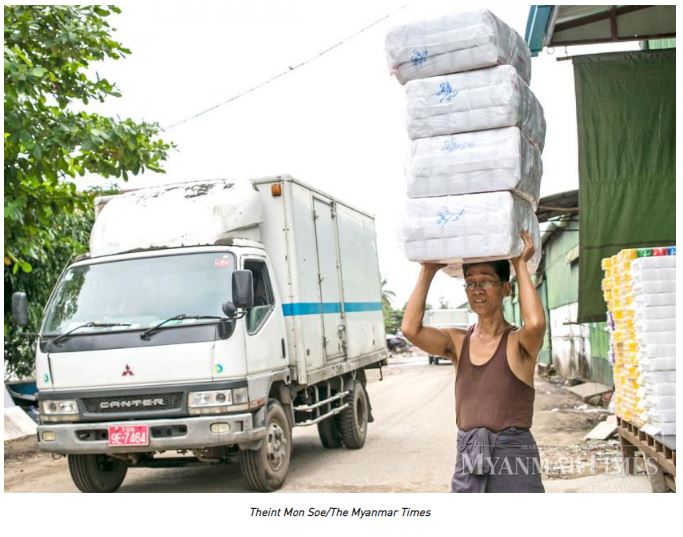Growth in Myanmar forecast to remain flat in 2020, says research company
The Myanmar economy is forecast to remain at 6.5 percent in fiscal 2019-20, with four factors foreseen to limit the country’s potential, according to a recent analysis by a British research firm.
In a report released last week, Fitch Solutions Macro Research, a unit of the UK Fitch Group, said “poor credit flow to small and medium enterprises (SMEs), a poor business environment, high inflation, and political uncertainty” could strangle Myanmar’s growth potential in the near term.
The growth forecast is the lowest so far. The ASEAN+3 Macroeconomic Research Office expects the Myanmar economy to expand by 7.1pc in fiscal 2019-20, while the World Bank is expecting growth at 6.6 pc.
In Myanmar, banks generally avoid providing loans to riskier SMEs, such as those without collateral or a credit record, even though the Central Bank last year permitted unsecured lending at 16pc interest rate. This perpetuates a “vicious cycle” where SMEs fail to obtain the necessary financing to fuel growth, said Fitch.
As SMEs account for a third of Myanmar’s GDP, low credit flow to SMEs not only hinders the ability for them to finance their growth. It also impacts the overall growth potential of the country.
Despite a slight improvement of six places to165th on the World Bank’s Ease of Doing Business index for 2020, Fitch cautioned that the poor business environment in Myanmar compared to Vietnam would further deter foreign direct investments (FDI) and “limit opportunities for supply chain relocation to Myanmar” in light of the trade tension between the US and China.
Last year, FDI fell short of the target by 30pc.
The vagueness of a new trade bill to be enacted also adds to the uncertainties and worries of foreign businesses. As reported by Myanmar Times previously, the new law could authorise the government to apply price control measures to products under the pretext of “ensuring national interest.”
Rising costs could also hold back spending. Fitch estimates high inflation to continue at around 6.5pc in fiscal 2019-20, driven by increased electricity tariffs, higher food prices and persistent fighting between the Tatmadaw and ethnic armed groups, which interferes with trade and logistics.
Political risks are another significant factor deterring growth. As the country will be holding its general election later this year, businesses are likely to hold back their investments before the election results. “While we expect the National League for Democracy to retain power, we believe that it is likely to receive a smaller majority, given its failure to deliver on some of its key promises during its current term,” Fitch said in its report.
On the positive side, growth will be determined by the manufacturing sector, along with trade and transportation sectors, while tourism should continue to boom, driven by growing volumes of Asian tourists.
Notably, “the withdrawal of Cambodia’s Everything But Arms [EBA] trade privilege by the EU could present significant opportunities for Myanmar’s manufacturing sector, especially in garment manufacturing,” said Fitch.
As Myanmar remains as an EBA beneficiary, competitive pricing from Myanmar’s garment industry is expected to give itself an edge.
Source: https://www.mmtimes.com/news/growth-myanmar-forecast-remain-flat-2020-says-research-company.html


 English
English




